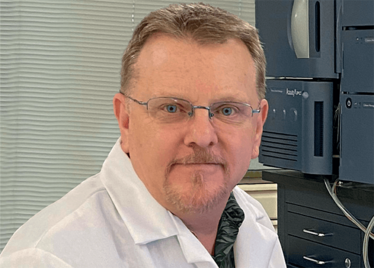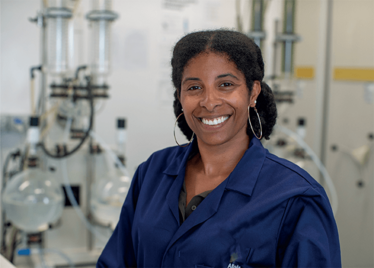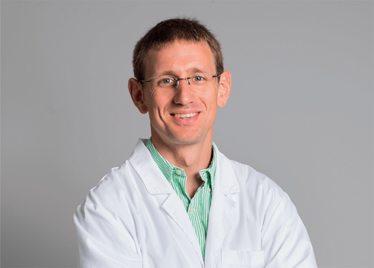
Contrary to Popular Opinion…
We asked our 2022 Power List winners: do you have any strong opinions with which the rest of the field tends to disagree?
Margot Lespade | | 6 min read | Opinion
Amber Wise
I wouldn’t say “the rest of the field disagrees” with me on this point, but I see a lot of “innovators” when I want to see more investigators and explainers. There are a lot of people looking at alternatives to the plant, such as purely synthetic routes to novel cannabinoids, converting naturally occurring cannabinoids into related compounds, or creating cannabinoids in other organisms.
I am a bit of a purist; I believe we should do more to respect the plant that already has all the mechanisms needed to create specific profiles of molecules that are hugely beneficial for a wide array of physical and mental challenges. We should focus on understanding how we can give people who are suffering access to the medicinal compounds that already exist. Humans have been using cannabis and other entheogens for thousands of years to successfully enhance their physical, mental, and spiritual lives – the only “broken” part of this system I see is our scientific understanding and access to a product that already exists.
Christopher Hudalla
I continue to be disappointed and dismayed by the lack of concern for the distribution of contaminated synthetic cannabis derivatives into the consumer market. After testing thousands of products based on synthetic isomerization processes, 100 percent of samples contained significant amounts of residual synthetic reagents and/or synthetic byproducts, most of which do not exist in nature and, as such, have no demonstrated safety profile. Most analytical laboratories that provide testing for these products are ignoring the presence of these unknown compounds and do not report their presence on the resulting Certificates of Analysis.
Collaborative work has been performed to demonstrate that these contaminants can be removed, but few producers, if any, are willing to take the extra time and effort to produce clean, contaminant-free products. Instead, these contaminated products continue to be distributed without oversight, putting consumers’ health and safety at risk for potential short and long-term health concerns – all for the sake of maximizing profits. I cannot imagine another legitimate industry that would be permitted to operate with such irresponsibility.

Amber Wise

Christoph Hudalla
Susan Audino
In my opinion, the cannabis testing industry is neither consistent nor reliable. Many laboratory owners intentionally compromise scientific methods to create broad acceptance ranges to meet customer needs within the limits of specifications. Although these methods may meet accreditation requirements, they do not always reflect the best science.
Alisia Ratliff
One of my strong opinions is that social equity programs are not serving the purpose for which they were intended. Though the inclusion of such programs is a step forward in being a totally inclusive market, we are not seeing the investment, mentorship, and regulatory support needed for those licensees to truly succeed.
I also believe that diversity and inclusion has become a trendy topic to discuss on conference panels around the world; however, from the inside looking out, it’s still a very one-sided view in the boardrooms of large cannabis companies. We need more women and people of color in executive roles, sitting on boards of companies, and providing investment into the industry. This will bring a truly diverse outcome to the phrase “giving back to the community.” It has to start somewhere – why not from the top down?
Markus Roggen
Total THC is often miscalculated! Also, from my perspective, ∆8-THC and HHC are a risky direction the hemp industry is going down. I also think the psychedelic industry is very nuanced and not all who made it in the cannabis industry will flourish here.
Cindy Orser
I firmly believe that the industry needs to move away from establishing a value for cannabis flower based on THC content. First, there is minimal clinical data to justify any particular THC dosing regimen at the medicinal level. Second, there is no rationale for making 90 percent pure THC extracts available for recreational use. We do not know enough about the long-term impact of chronic use of such products. Most importantly, equating the value of cannabis flower to its THC content has created the monster that cannabis-complicit states have to wrestle with now – fraudulently inflated THC numbers. Furthermore, the focus on THC content ignores the contribution of other physiological secondary metabolites, including terpenoids and flavonoids.

Alisia Ratliff

Cindy Orser

Markus Roggen

Susan Audino
Linda Klumpers
The field faces huge issues in terms of talent recognition. I have mentored people in the industry who were very clever and had a wider knowledge of the scientific literature on a topic than I, but whose talents were not acknowledged by their management purely because of the lack of an academic qualification. I have worked for companies who refused to send out advertisements for an R&D position requiring an MSc degree “or equivalent work experience” because they simply would not accept anyone without such a degree.
This is a general trend I have noticed more in this industry (and in this country) than elsewhere. I believe the narrow-minded view that a degree is the only option can lead to many missed opportunities. There are tons of ways of acquiring more academic experience – for example, through coursework and professional certificates. I truly hope that people without a degree, but with tons of motivation, are not giving up; there are companies out there that recognize your talents!
Andrew Samann
I don’t think the industry needs to reinvent the wheel with respect to standards. There are likely a dozen different standards organizations all vying for cannabis producers to follow their guidelines. Standards for Good Manufacturing Practices are already used by every developed country in the world and they are perfectly suitable as written for cannabis.
Plagiarizing what has already been written and adding a few anecdotes about cannabis does not help standardize the industry – it only complicates matters. Standards organizations should stay in their lane by identifying suitable specifications for safety and quality instead of trying to write “how-to” guidelines that are likely overkill for manufacturing safe cannabis products.
Shawn Helmueller
As a classically trained analytical chemist, I have an appreciation for the chemical complexity of natural products. I also understand the possibilities of using natural products to derive novel compounds and therapeutics. However, the cannabis industry blurs the lines between these two very divergent pathways to new therapeutics and recreational use products. I was in a gas station the other day and I saw a big yellow sign advertising “legal THC” for sale. I have no expectation that normal gas station-goers have any idea what’s in these products labeled “legal THC.” I assume they associate the products with the natural THC (produced by plants) they have tried in the past or in a legal, regulated recreational cannabis market.
But the products being marketed and sold as “legal THC” resemble nothing of the natural plant phytochemistry and consumers don’t understand these subtle nuances. We see it all the time – products consisting of∆8-THC, hydrogenated and acetylated cannabinoids, with packaging claims such as “THC Free” (in stark contradiction to the gas station sign), “All-Natural Hemp-Derived,” and “Organic Hemp Product” marketed and sold as “legal THC.”
I’m not opposed to using a natural product as a building block to develop and study new therapeutics or recreational use products. I am (vocally) opposed to the cannabis industry’s tendency to skip to the end and market synthetic cannabinoid derivatives before properly characterizing the active ingredients or inactive impurities. I don’t personally agree with large parts of the industry that view these synthetic conversion products as ready for commercial production and incorporation into consumer goods. I view these derivatives as still in their infancy, with exciting research potential. Marketing and selling these products without proper purification and characterization will be a potential black mark for emerging legal cannabis industries.

Andrew Samann

Shawn Helmueller

Linda Klumpers
Margot Lespade, Associate Editor, The Cannabis Scientist












